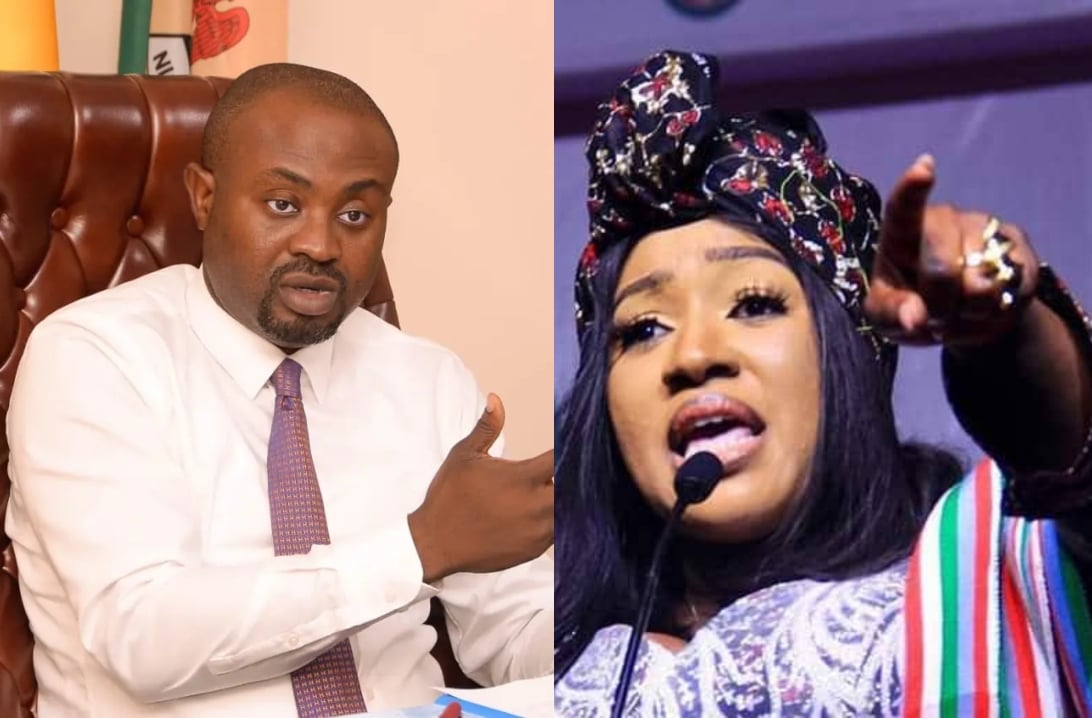President Bola Tinubu's administration initially praised for its "politically correct" appointments and swift policy measures, has begun facing several controversies surrounding some of its top officials.
The initial positive sentiment shifted with political glitches during ministerial screenings and subsequent controversies engulfing several key figures.
Betta Edu:
The Minister of Humanitarian Affairs and Poverty Alleviation, Betta Edu was suspended amidst allegations of diverting over 585 million naira to a personal bank account.
A leaked document showed her instructing a transfer to the account of officials managing government grants for vulnerable groups.
President Tinubu called for an investigation by the EFCC and emphasized reform within the National Social Investments Programmes.
Edu, the youngest minister in the cabinet, denies wrongdoing, claiming she acted in the "best interest" of the vulnerable.
Hannatu Musawa:
The Minister of Art, Culture and Creative Economy disowned a statement linking her to a National Youth Service Corps (NYSC) controversy.
This controversy resurfaced after Ms. Musawa assumed office, as the NYSC confirmed she was still undergoing national service.
Critics called for her removal, stating she could not hold both positions simultaneously.
She denied releasing the statement and claimed the NYSC withheld her discharge certificate after accusing her of absconding. Musawa argues she wasn't granted a fair hearing.
Olubunmi Tunji-Ojo:
The Minister of Interior faced scrutiny over alleged discrepancies in his NYSC certificate.
Participating at age 37 raised concerns, though he explained eligible individuals can participate anytime after graduation, provided they graduate before 30.
He claimed to have completed the scheme in 2020, but his certificate's issuance date was February 2023.
While the NYSC cleared him, further controversy arose when it was revealed a company he allegedly directed received N438.1 million from a contract overseen by the suspended Betta Edu.
He clarified that he resigned his directorships before entering Parliament.
Uju Kennedy-Ohanenye:
The Minister of Women Affairs has courted controversy with several missteps. In September, she interfered in a sexual harassment case at the University of Calabar, threatening the victim.
This drew widespread criticism, leading to an apology after public backlash. Later, her suggestion of children producing everyday items was condemned as child labour endorsement, which she refuted, claiming it aimed to empower girls through vocational training.
Finally, her announcement of suing the UN for excluding Nigeria from a gender equality list was criticized for being "unrealistic" and ignoring Nigerian women's challenges.
Ajuri Ngelale:
The presidential spokesperson's statements following President Tinubu's UAE visit were disputed.
Claims of lifted visa bans and billion-dollar investments were contradicted by UAE officials and opposition commentators.
For instance, Atiku Abubakar's campaign questioned the visa claim and the credibility of investment deals, demanding evidence that Ngelale hasn't provided.
Another controversy involved Ngelale falsely claiming President Tinubu was the first African leader to ring the NASDAQ closing bell.
He later apologized, citing misleading information from a third-party event organizer.
Halimat Shehu:
The former National Coordinator of the National Social Investment Programme Agency was suspended due to alleged financial misappropriation of N37.1 billion within the Ministry of Humanitarian Affairs.
Arrested and interrogated by the EFCC, she is accused of signing off N44 billion in five days.
The EFCC investigation also involves second-generation banks for their suspected complicity in the illegal transfers.
Shehu, previously under similar scrutiny by the EFCC under the previous administration, denies any wrongdoing.
These controversies surrounding key officials present challenges for President Tinubu's young administration.
Addressing these issues transparently and holding those responsible accountable will be crucial to retaining public trust and ensuring effective governance.




















